YKDFN pushes back against Tch's call to be included in Yellowknife land acknowledgments
Chief urges Tch to meet with Yellowknives Dene to find common ground
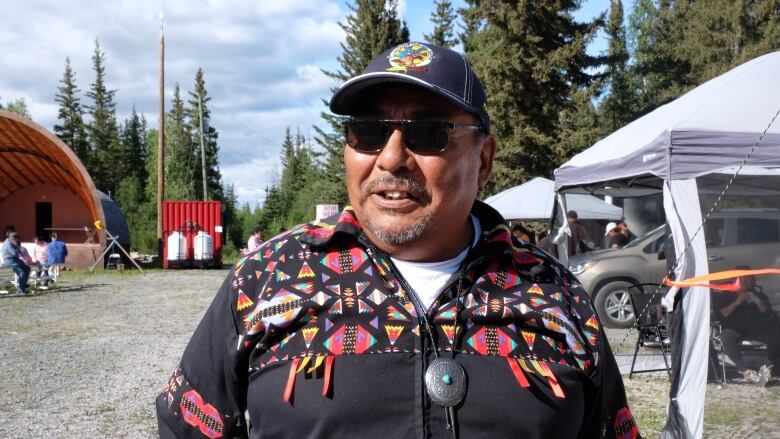
The Tch Government wants land acknowledgements in Yellowknife to recognize the city as being within Mwh Gogha D Nt the traditional area described by Chief Monfwi during the signing of Treaty 11 in 1921.
That request doesn't sit well with NdilChief Fred Sangrisof Yellowknives Dene First Nation (YKDFN), who said it undermines Akaitcho Dene First Nations' land, resources and self-government negotiations, and theYellowknives Deneas the primary occupants of the Yellowknife area for more than 7,000 years.
"There's a scenario that's happening and that scenario is trying to get the Yellowknives under one roof with Tch and that's not a dream for Akaitcho people. That's not where we're going," said Sangris.
Tch Grand Chief Jackson Laffertyrecently wrote a letter to the City of Yellowknife, the speaker of the Legislative Assembly, and the federal government, calling for the Tch to be recognized as traditional occupants of Yellowknife in city land acknowledgements.
Lafferty was not immediately available for an interview with CBC News.
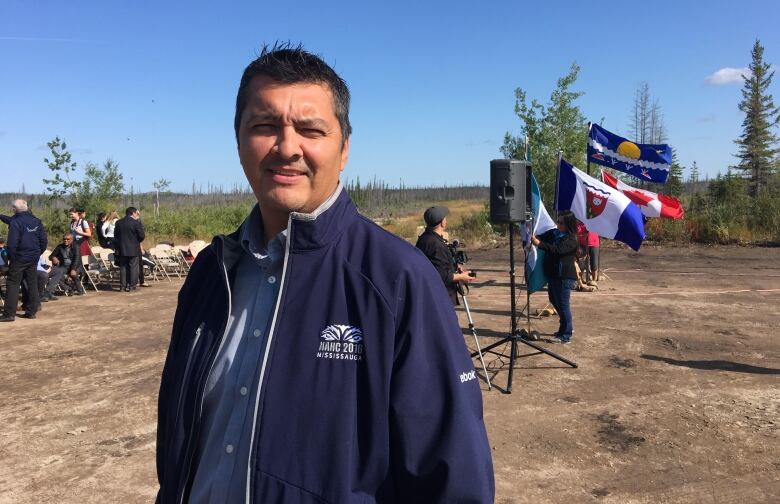
Sangris said the request to add Tch to land acknowledgements in the city raises larger issues, including the failure to uphold the spirit of a 2002 Overlap Agreement signed between the Tch and Yellowknives Dene on their respective boundaries, harvesting rights and overlapping interests.
Sangris said Akaitcho Dene First Nations' support for the Tch Agreement was contingent upon the Overlap Agreement, in which the Tch acknowledgethat their primary-use area does not include the City of Yellowknife.
He said the 2002 agreement recognizes that Tch will use land within Akaitcho territory for hunting, trapping and harvesting.
The Tch signed similar agreements with Dehcho First Nations.
Land claim concerns
Sangris said the Tch request for land recognition undermines 20 years of Akaitcho Treaty 8 negotiations with Canada over land, resources and self-government.
These talks includeDeninu Ku'e First Nation, Yellowknives Dene First Nation (Ndiland Dettah), utsel K'e Dene First Nationand Smith's Landing First Nation.
"The request [the Tch] aremaking is outside their actual land claim agreement. If they're trying to re-negotiate something, it's not gonna work," said Sangris.
Sangris said the Yellowknives Dene are a distinct group, andthat the Tch connection to the area is not equivalent to their nation's use of the area.
"Even though we had battles with Tch in 1823, a peacemaking at Mesa lake, we're still here," said Sangris.
Gots'kt (Mesa Lake),lies 80 kilometres from Wekwet. It's known as the place where Edzo, a Tch leader, and Akaitcho, a Yellowknives Dene leader, ended years of fighting between Tch and Akaitcho peoples.
Dispute over boundaries, history
The Tch government says the Tch Agreement's boundaries were recounted by Elder Harry Black at the Berger Inquiry in 1977.
Black said Chief Monfwi told an agent for Canada that the Tch boundary starts at Fort Providence, N.W.T., follows the Mackenzie River to Great Bear Lake, across to Contwoyto Lake and to Lutselk'e, then back along Great Slave Lake to Fort Providence.
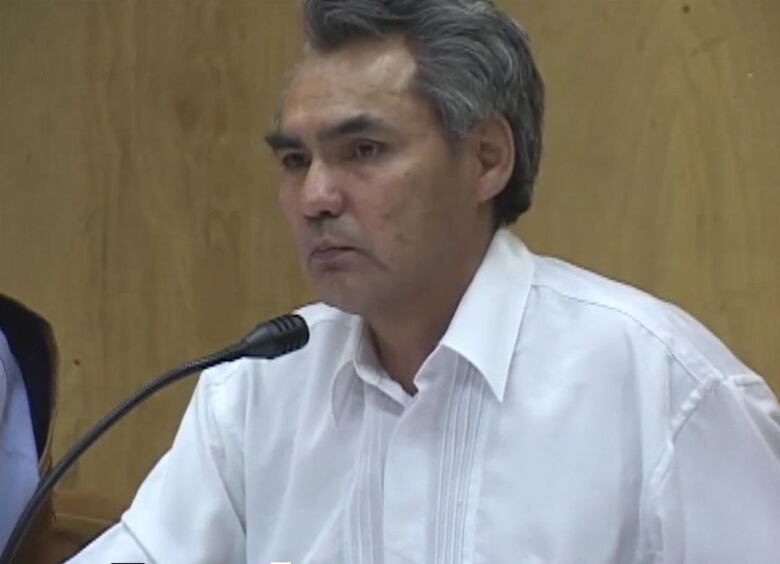
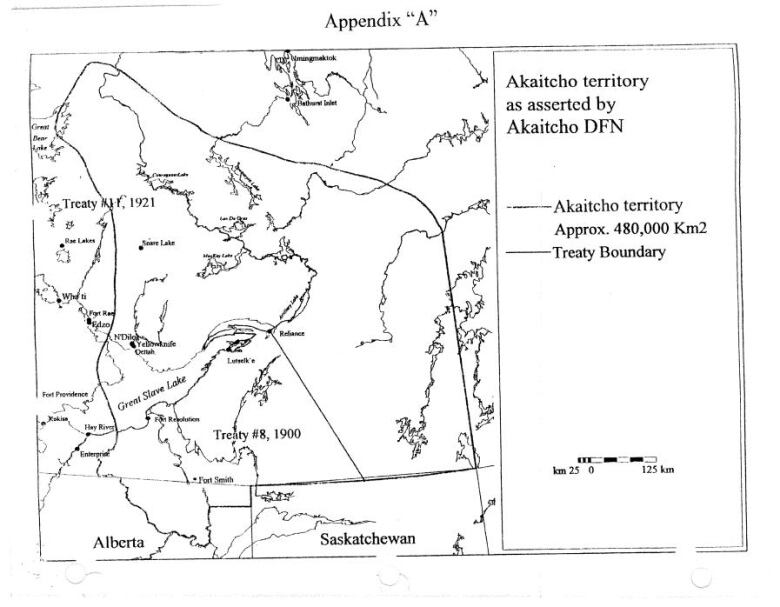
According toSangris, that's the same territory thatChief Sizeh Drygeesecommunicated to Monfwiin 1920, when he was explaininghow the Akaitcho Denedescribed their boundary toCanadian government agents.
"All Monfwi did was repeat it and drew it on the map even though it's not part of his territory or land use area."
Sangris said the history of the two nationsis relevant to adiscussion about traditional use and land recognition.
He said he wants Tch leaders to meet with Yellowknives Dene First Nation leaders and discuss how the boundary agreement is not being implemented. Since 2006, YKDFN has written at least five letters to Tch grand chiefs about the issue, said Sangris.
He also said the Tch are denying Akaitcho members "equal representation" on the Wek'ezhii Renewable Resource Board and in the work on shared areas such as Dng Wek'hod, a candidate for protected-area status.
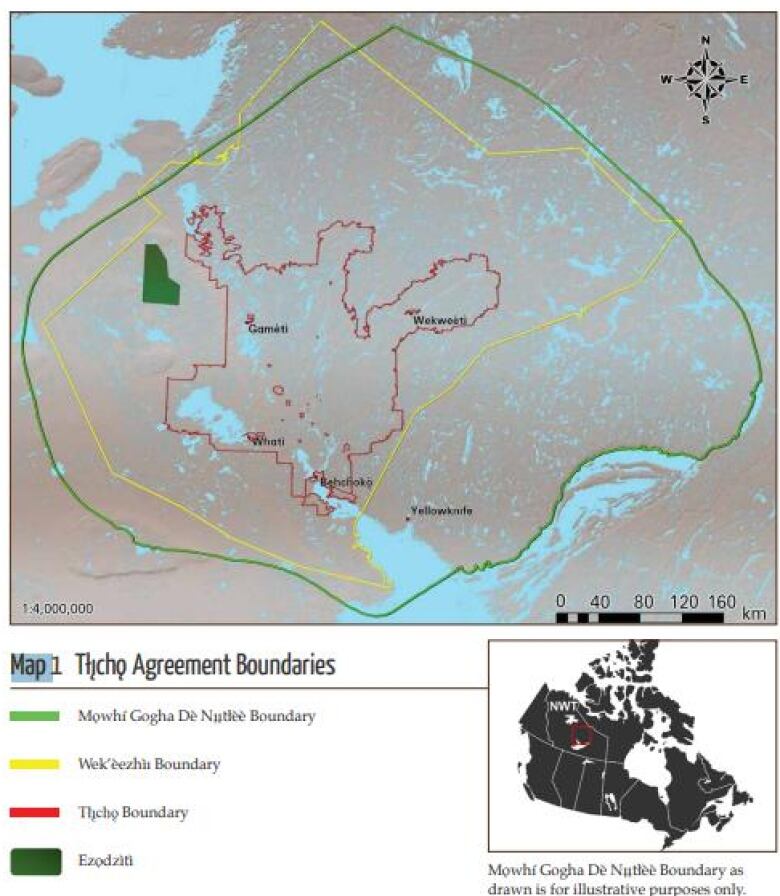
Former Dene National Chief Bill Erasmus said he was "somewhat surprised the Tch have gone this route."
"It makes one wonder about the timing of this and what's behind it," he said.
Erasmus saidpeople have always viewed the land as shared, adding "if the Tch expect to be recognized when the acknowledgement is made in Yellowknife, than the same thing should happen in Behchok. They should say this is the traditional territory of the Yellowknives Dene also."
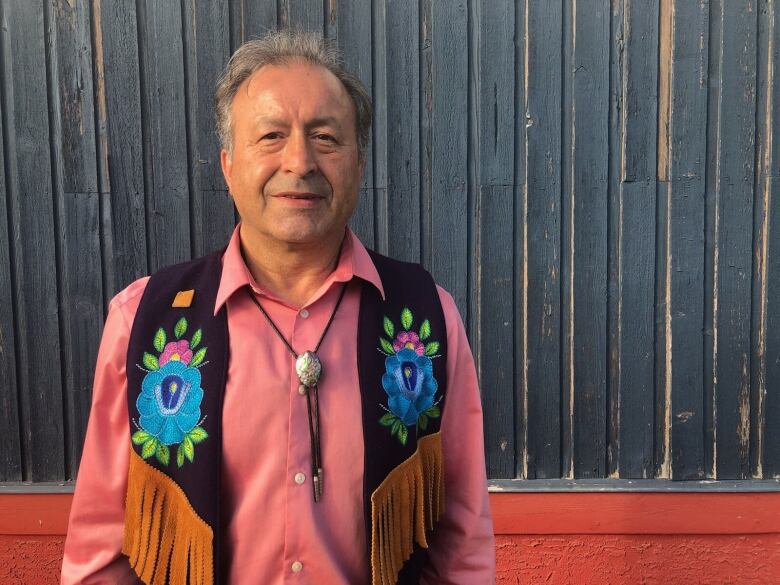
City issues response
In a statement, the City of Yellowknifesaid it is "respectful of all the First Nation, Mtis,Inuit peoples and governments who are foundational in our community and region and whose presence has been on these lands since time immemorial."
It says there are "overlapping Indigenous traditional interests" within the city of Yellowknife and that it will be "considering follow up"with Indigenous governments who have an interest in the area.
The North Slave MtisAlliance is included in the city's official land acknowledgement.
North Slave MtisAlliance vice president Marc Whitfordsaid in a statementthat "the City of Yellowknife, would be well served to equally acknowledge all of the Indigenous peoples in Yellowknife in a spirit of fairness and promotion of inclusivity."
Whitford said he hoped the Tchraisingthe issue of land acknowledgements will "promote a change for the better on how [North Slave Mtis] are acknowledged and treated at various venues."
Erasmus saidTch and YKDFN have many connections, including marriages.
"It's important that everyone works together," he said.
With files from Natalie Pressman












_(720p).jpg)


 OFFICIAL HD MUSIC VIDEO.jpg)
.jpg)



























































































